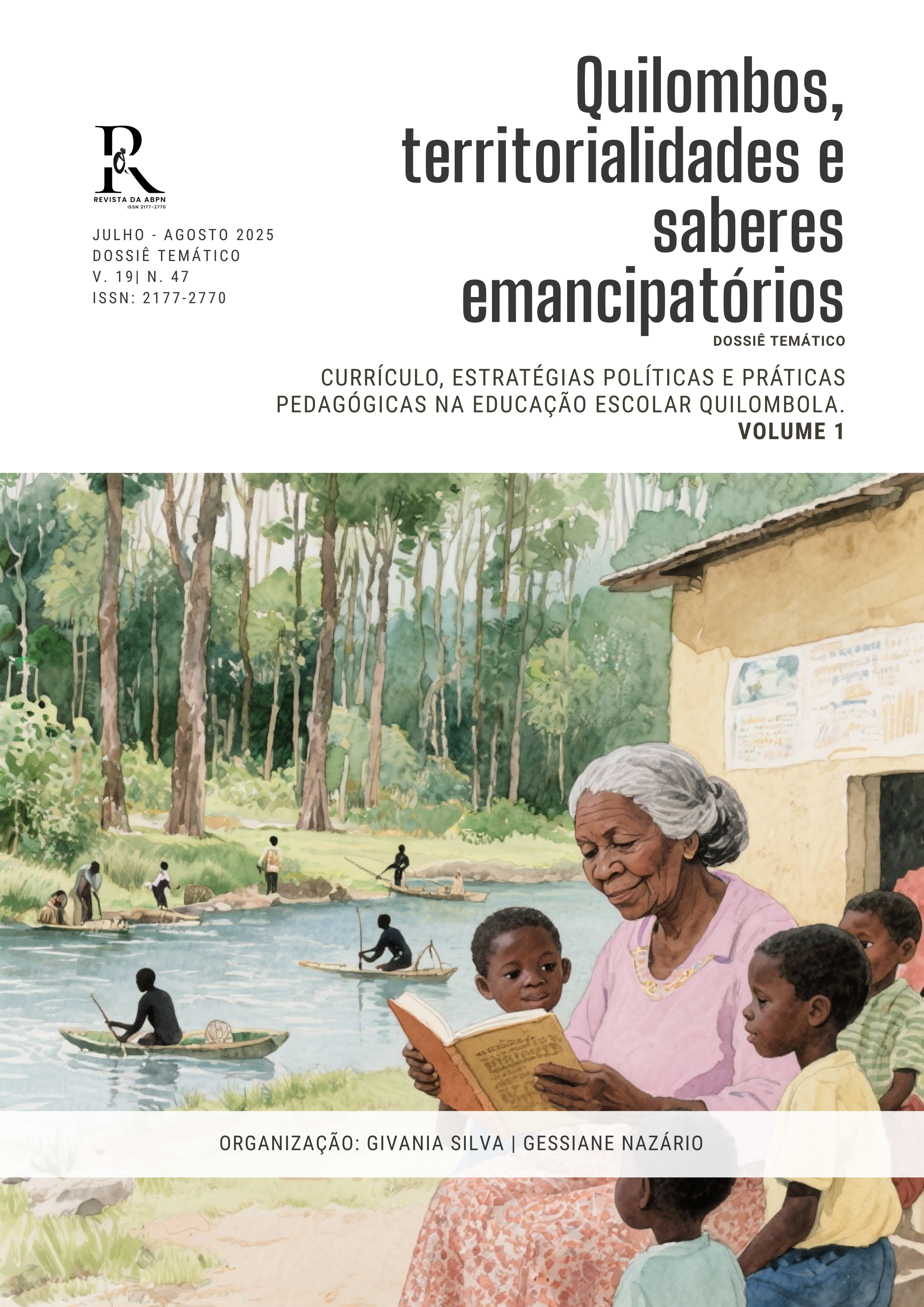PATHS OF THE SCHOOL AND QUILOMBOLA TEACHING IN PINHÕES
Main Article Content
Abstract
This article discusses the agency of the quilombola community of Pinhões in the achievement of establishing a school in the quilombo, based on a master's research completed in 2020, in which women from the community were interviewed whose social practices constitute the quilombola territoriality in that place. In the narratives that recall moments from the personal lives of the interviewees, stories about an unusual social practice emerged: teaching in the quilombo. Following the trail opened by these women's memories, we reconstruct the paths that led to the establishment of the school, highlighting the strategies for accessing rights and the flows that mark the entry and exit of teachers in the quilombo's teaching practice. The article is organized into four parts, containing the introduction, the trails that make up the quilombo's school, the quilombo's teachers whose memories allowed us to access a genealogy of the quilombo's school and how it transformed into the school in the quilombo. Finally, we present considerations regarding education in the collective quilombola agency.
Article Details

This work is licensed under a Creative Commons Attribution 4.0 International License.
Copyright Statement
- Authors retain copyright and grant the journal the right of first publication, with work simultaneously licensed under the Creative Commons Attribution License CC-BY 4.0 which allows the sharing of the work with acknowledgment of the authorship of the work and initial publication in this journal.
- Authors are authorized to enter into additional contracts separately for non-exclusive distribution of the version of the work published in this journal (eg, publishing in institutional repository or book chapter), with acknowledgment of authorship and initial publication in this journal.
- Authors are allowed and encouraged to post and distribute their work online (eg in institutional repositories or on their personal page) at any point before or during the editorial process, as this may lead to productive changes as well as increase impact and citation of published work (See The Effect of Free Access).

